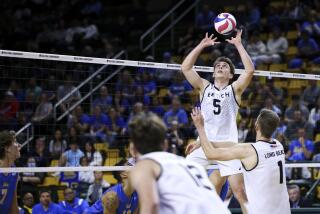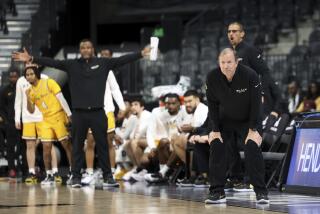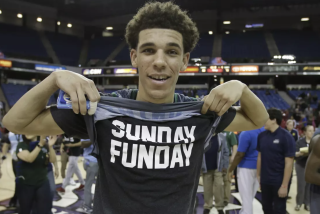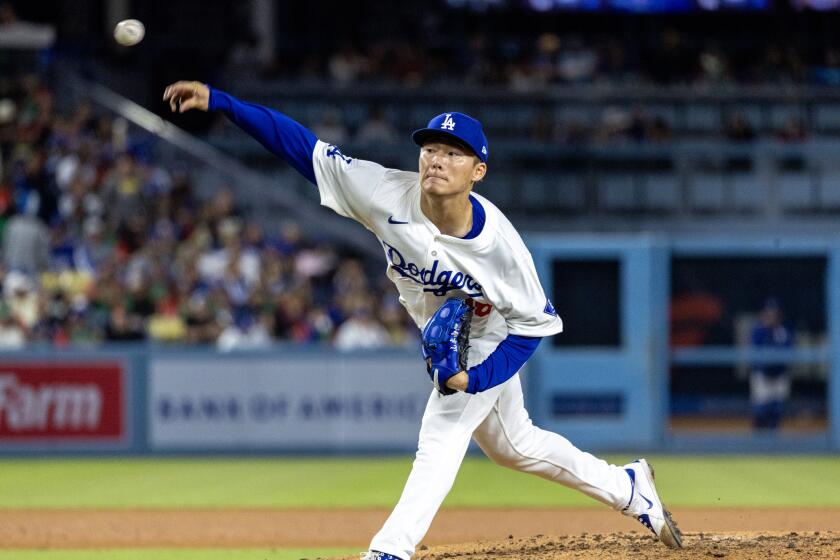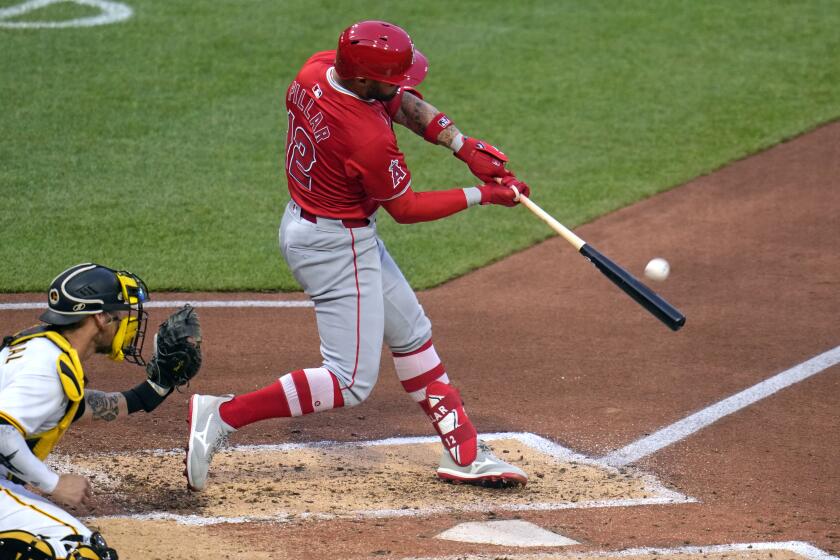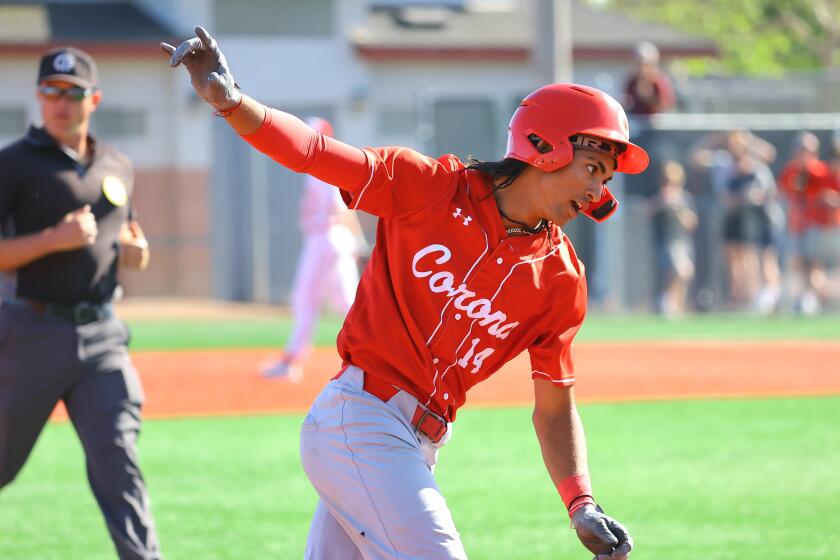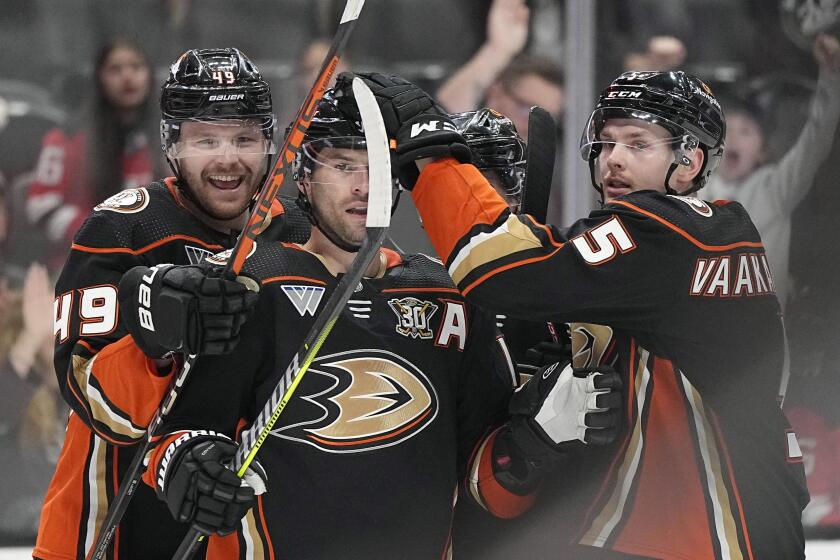Former Long Beach State player Glenn McDonald’s NBA career was brief, but it had one shining moment
Glenn McDonald was an unlikely candidate for a pivotal role in perhaps the greatest game in NBA history.
The former Jefferson High and Long Beach State star’s NBA career consisted almost entirely of two mostly undistinguished seasons with the Boston Celtics, after which he all but vanished in the minds of U.S. professional basketball fans.
His best seasons were spent overseas far from the NBA limelight — in Sweden and the Philippines.
But when fate dropped McDonald into the middle of an epic struggle in 1976, he was equal to the task, scoring six of the Celtics’ last 10 points in an unforgettable 128-126 triple-overtime victory over the Phoenix Suns in the NBA Finals.
Thirty-five years later, he still can’t seem to believe it.
“It was like something you read about in books or see in a movie,” McDonald says. “Here’s this guy that hardly ever gets used — that’s what they called me: seldom-used Glenn McDonald — and, I won’t say he wins the game, but he plays a big part.
“It was amazing.”
The 59-year-old McDonald, director of intramural sports at Long Beach State, was surprised he even got a chance.
It was nearly midnight in Boston on June 4, 1976, when the 6-foot-6 forward got the call from Coach Tom Heinsohn.
With the series tied at two victories apiece, the weary teams had battled through two draining overtime periods in a scene so raucous, Sports Illustrated later noted, “[it] could be used as a training film for the National Guard.”
A last-second shot by Garfield Heard of the Suns had sent the game to a third overtime, during which Celtics forward Paul Silas fouled out, necessitating a lineup change.
McDonald, on the bench, was all but certain that rugged teammate Steve Kuberski would get the call.
“And then all of a sudden I hear somebody say, ‘Mac,’” McDonald recalls. “And I just jumped up and went.”
Later, Heinsohn explained.
“I wanted fresh legs out there,” the coach said. “Both teams were exhausted. Glenn was the fastest guy I had. All I told him was, ‘Mac, run ‘em every chance you get.’
“Kuberski was a better rebounder than Glenn but, in that situation, I wanted someone who could outrun the competition.”
McDonald made Heinsohn look like a coaching genius.
Taking a pass from Jo Jo White, he scored on a fastbreak layup to break a 118-118 tie. Then he took a pass from John Havlicek and scored on a turnaround baseline jumper, stretching the Celtics’ lead to 122-118. Finally, he grabbed a rebound, was fouled and made two free throws to make the score 126-120.
“You could see the adrenaline was keeping people going,” McDonald says, “but I knew that if I needed to outrun somebody, most likely I’d be able to do it.”
His mandate was not to score but to provide energy, he notes, “but the ball kept dropping into my hands.”
In the aftermath, Bob Ryan of the Boston Globe wrote, “What do you say after you’ve seen the greatest game of professional basketball ever played?”
McDonald, he understated, was an “improbable” hero.
But McDonald says it wasn’t until he finally got back to his apartment in Woburn, Mass., in the wee hours of June 5 that the magnitude of his clutch contribution really hit home.
“The people in my building had put signs on my door,” he says, “so I’m like, ‘Wow, you really did something tonight.’”
Two days later, the Celtics claimed their 13th NBA championship with a Game 6 victory at Phoenix.
Four months after that, the Celtics traded for former UCLA All-American Curtis Rowe, clearing roster space by waiving McDonald, their first-round pick in the 1974 draft.
McDonald admits that he was “somewhat shocked.”
He signed with the Milwaukee Bucks, played nine games and was cut again, never again playing in the NBA.
A tryout with the Suns went nowhere, he says, “and I think that burned me out because I knew how well I had played. For them not to keep me, it just kind of took my drive away.”
When he later got an offer to play in Sweden, McDonald says he first had to reassure his wife, Renee, before accepting.
“She said, ‘Are you trying to get away so you’ll stop hearing, ‘Glenn, what happened, what happened?’” McDonald remembers. “And I said, ‘No, I have a wife and hopefully we’ll have a family soon. I need a job to support my family.’”
After playing seven seasons overseas, where his teams won three championships, McDonald returned to Long Beach State in 1984. An assistant coach in men’s and women’s basketball, he later compiled a 54-58 record in four seasons as head coach of the women’s team before settling into his current job.
He and his wife, nearing their 35th wedding anniversary, have two grown children: Michael, a former Stanford basketball player, and Alexis, a former Washington volleyball player.
His NBA tenure may have been short, but it was special.
“I honestly believe I had a great career,” he says. “I tell people all the time, ‘Whether it’s one day in the NBA or 10 years, at least I got an opportunity to see what it was like.’ Just to be on that level, associated with the greatest players ever, was a blessing.”
The cherry on top was a championship ring with his name on it, not to mention an honorary place in Celtics lore.
More to Read
Get our high school sports newsletter
Prep Rally is devoted to the SoCal high school sports experience, bringing you scores, stories and a behind-the-scenes look at what makes prep sports so popular.
You may occasionally receive promotional content from the Los Angeles Times.
